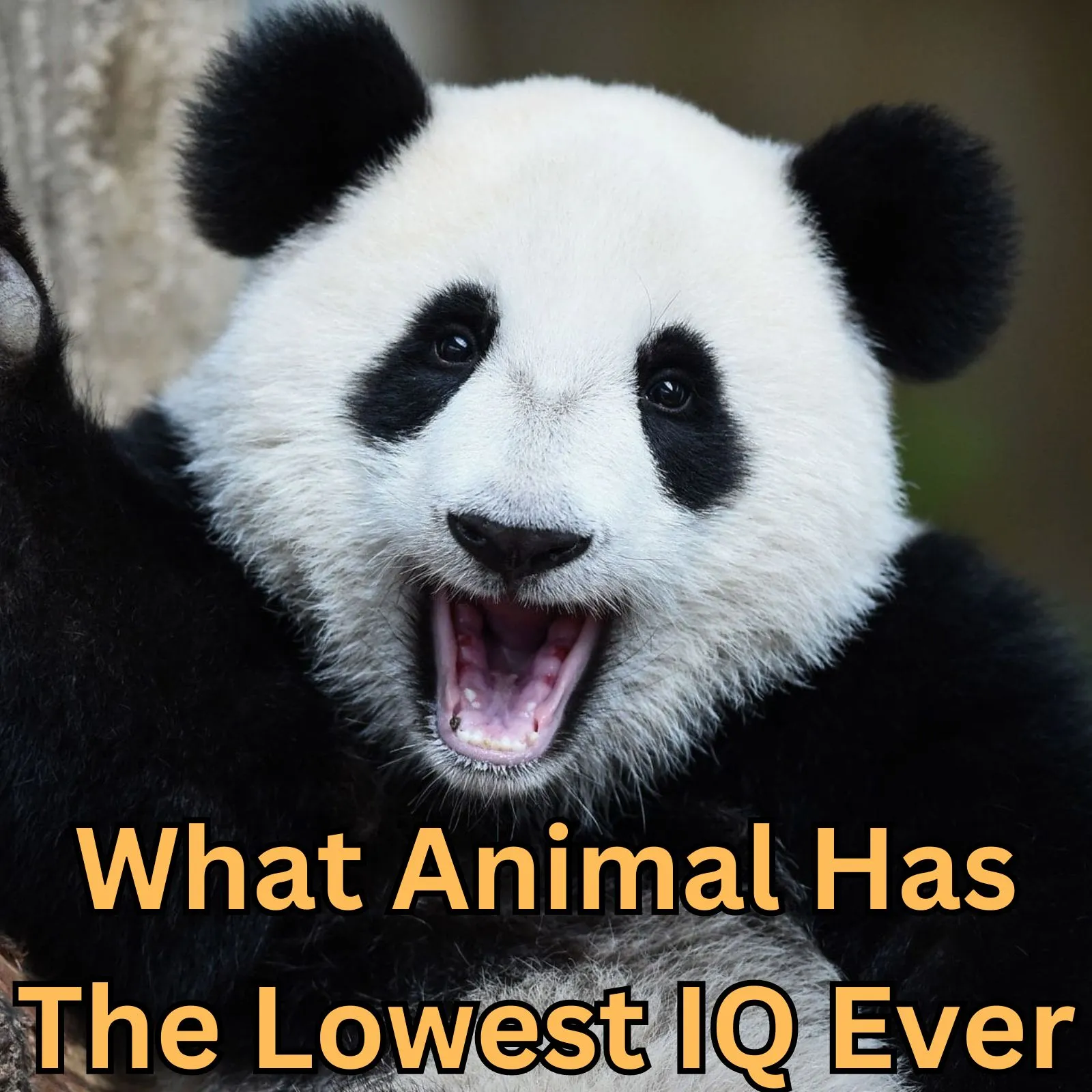
What Animal Has The Lowest IQ Ever
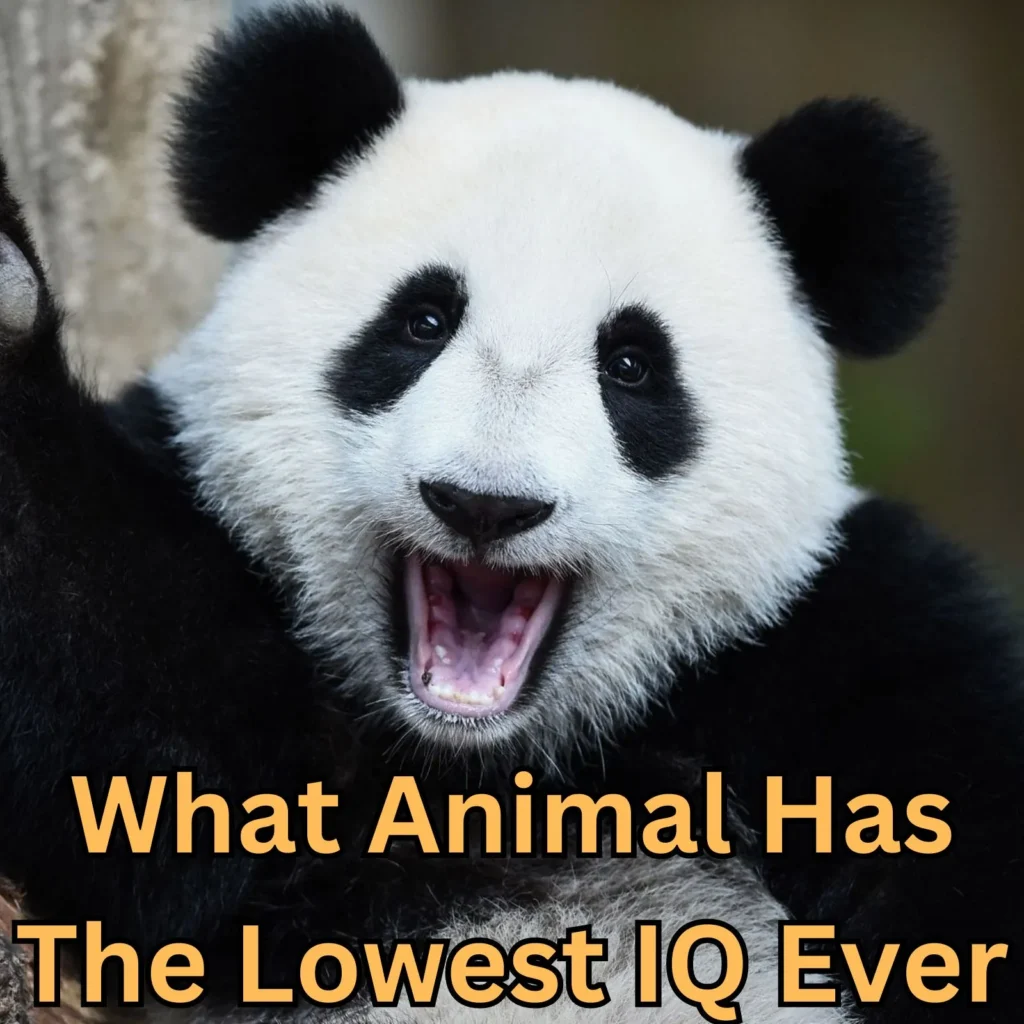
What Animal Has The Lowest IQ Ever
Introduction
Despite extensive research, it’s tough to definitively identify the creature with the smallest brain power or lowest IQ; however, a prevalent belief among scientists suggests that the invertebrate sea sponge could potentially fall into this category as they lack a conventional nervous system normally associated with intelligence.
| Animal | IQ Range |
|---|---|
| Jellyfish | Lower Than 0 (no centralized nervous system) |
| Sea Sponge | Non-existence (no brain or neural tissue) |
| Bivalves (clams, oysters) | Likely Very Low (minimal cognitive abilities) |
Not an easy task
Intriguing as it may be, the domain of animal intelligence is not straightforward. The matter is often complicated by variations in how we perceive ‘intelligence’ and our quantification method’s inefficiency. Despite these complications, assessments have attempted to render hierarchical distinctions within animal species based on observable cognitive capacities and instinctual behaviors.
At the very bottom of this intelligence hierarchy, we encounter some fascinating creatures. One such creature is the jellyfish, renowned for its extremely basic nervous system. Jellyfish are not known for possessing a conventional brain, thereby implying an IQ that could be said to be even lower than zero. Instead, they have a network of nerve cells (known as a ‘nerve net’) that allows them to respond to environmental changes. This rudimentary structure, however, restricts their cognitive abilities considerably, granting them dominance over only simple stimulus-response actions.
Some Examples
Furthering our journey through low-intelligence entities, we come upon another intriguing specimen, the sea sponge. Sponges lack not just a standard brain, but any neural tissues. They primarily consist of a loose conglomeration of cells and do not have sensory organs, therefore lacking the ability to process information and react accordingly – an attribute often affiliated with intelligence. With nonexistent cognition, their ‘IQ’, if the term is still applicable in this context, it’s practically nonexistent.
Finally, we shouldn’t disregard various members of the Bivalvia class, encompassing animals like clams and oysters. These marine and freshwater dwellers possess a rudimentary nervous system incapable of complex processing. Their observed behavior indicates minimal cognitive abilities, suggesting a very low IQ score.
Notably, these assessments remain susceptible to extensive debate given the ongoing research into simplistic and complex forms of cognition in different species. As scientific opinion evolves, so too does our understanding of animal intelligence, necessitating continuous reflection on concepts of intelligence itself.
Exploring the Intelligence Scale of Different Animal Species
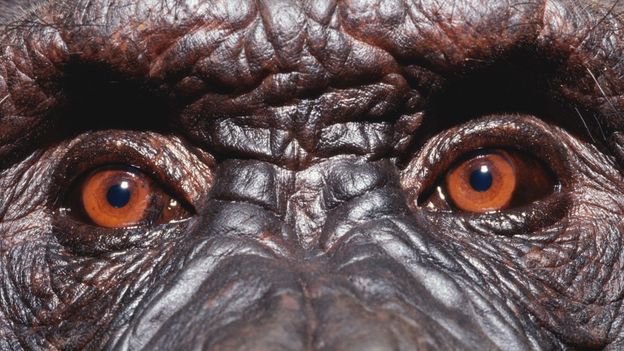
When it comes to understanding the intelligence scale of different animal species, it’s important to consider that the measurement of IQ in animals is not as straightforward as in humans. Unlike human beings who can verbalize and demonstrate their intelligence through a variety of tests, animals have diverse ways of expressing intelligence that may not necessarily align with our human understanding of it. With that in mind, the species often considered to be at the lower end of the brainpower spectrum is the turkey.
| Animal Species | Intelligence Rating |
|---|---|
| Humans | Highest |
| Chimpanzees | Very High |
| Dolphins | High |
| Dogs | Medium to High |
| Turkeys | Lowest |
Why are turkeys generally perceived as unintelligent? There are a couple of factors that contribute to this notion:
- Repetition of Mistakes: Turkeys have been observed repeatedly performing actions that lead to negative outcomes, indicating a lack of learning from experience.
- Limited Problem-Solving Capability: They demonstrate limited ability when it comes to solving problems or navigating complex environments compared to other animals.
Human-centric Scale
But remember, we’re measuring these animals on a human-centric scale. The turkey fails in tasks that require ‘human’ intelligence but it may very well excel in areas specific to its needs and environment – perhaps aspects we don’t recognize or value from our perspective.
As Josh Billings puts it, “A dog is the only thing on earth that loves you more than he loves himself“, this quote, while about dogs, also underscores the unconditional, selfless nature that many animals portray, which in itself, is an intelligence we often overlook and do not measure on our scales.
Remember, IQ only tells part of the story when it comes to intelligence – it’s just one way to measure cognitive abilities, and doesn’t take into account emotional intelligence, social awareness, survival instincts, or innate abilities unique to that species; all factors we should consider when assessing an organism’s overall smarts.
Understanding IQ Measurements in Animals: Evidence and Insights
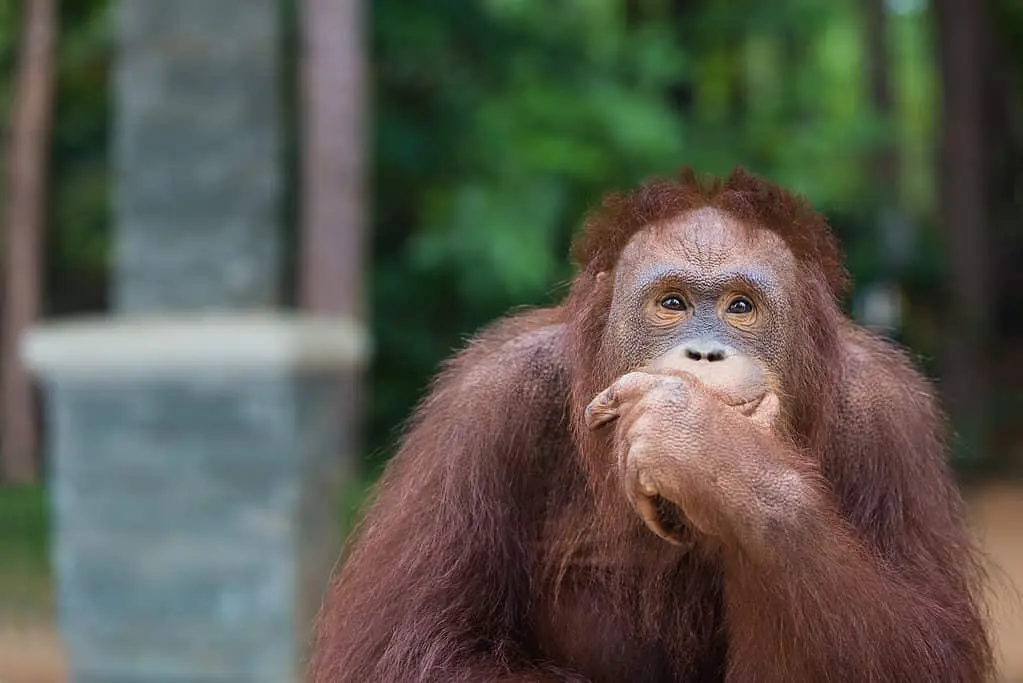
Thinking Orangutan
Ok, let’s dive into the fascinating subject of animal intelligence and specifically focus on the creatures that register with comparatively lower standings on the intellectual scale. However, before we declared one animal as having the “lowest IQ ever,” it is crucial to understand how these penchants are gauged among our fellow members of the animal kingdom.
Animal intelligence, unlike human IQ, isn’t measured by standardized exams or pyschometric tests. Scientifically, discerning an accurate representation of an animal’s intelligence isn’t as straightforward, due to a variety of factors such as variances in species behavior, survival instincts, and cognitive capabilities. Hence, rather than slapping an IQ number to measure animal intelligence, researchers often study specific functionalities like memory, problem-solving abilities, and learning speed.1
| Criteria Used to Evaluate Animal Intelligence |
|---|
| Memory retention ability |
| Problem-solving skills |
| Speed in learning new tasks |
| Social cognition |
Given these criteria, many animals would register varying levels of cognitive capability, leading to multiple differing conclusions on who precisely occupies the lowest rung.
Small Animals and Different Classes
Typically, small animals with simple nervous systems, such as insects, might be expected to score relatively low on such a scale2, but it’s not entirely fair to compare the cognitive capabilities of ants to, say, dogs or dolphins. Each has evolved to suit their respective ecological niches. To our surprise, some insects do perform complex behaviours – bees, for example, communicate through intricate ‘waggle dances.’ So, while they might not win a spelling bee anytime soon (pun intended), labeling them as ‘low IQ’ could understate their unique kinds of intelligence.
Considering a case from the same biological class as humans, i.e., mammals, sloths receive significant attention when discussing the least intelligent animals. Sloths spend much of their lives hanging upside-down in trees, eating, sleeping, and even giving birth in this position. They move very slowly, conserving energy for vital functions necessary for survival, hence prioritising physical adaptation over advanced cognitive function.3
But affixing the label “lowest IQ ever” to any species should be done with caution. In truth, every animal harbors skills and cognitive capabilities adapted for their ways of living and surviving in the wild. Albert Einstein famously said, “Everybody is a genius. But if you judge a fish by its ability to climb a tree, it will live its whole life believing that it is stupid.” Certainly, the same can be extended to our furry and feathery friends, and even those with scales or exoskeletons.
Not All Brains Are Made Equal: Analyzing Lower IQ Levels Among Animals
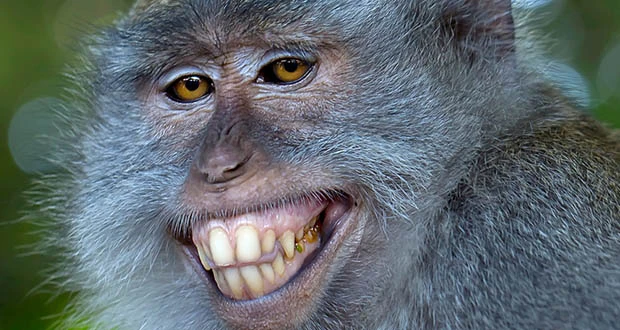
Hehe
The richness and multi-faceted nature of animal intelligence has been a subject of much debate with many varying viewpoints. Utilizing not just the criteria of IQ, but rather focusing on cognitive skills, problem-solving capabilities, and adaptive behavior can provide a more accurate representation of an animal’s intellectual prowess. Still, it’s a fascinating concept to explore how brain structures and different manifestations of intelligence can vary wildly. Speaking specifically about which animal has the lowest IQ, evolutionary adaptations and survival necessities have shaped the intelligence quotient in unexpected ways hence comparisons must be handled carefully.
There are certain invertebrate species or creatures with simple brain structures where lower levels of cognition might be inferred. The simplicity lies typically with basic survival instinct mechanisms, with no room for complex problem-solving or adaptive learning. However, the comparison of IQ scores between different species should not be misconstrued as a measure of an animal’s value or worthiness. Instead, it represents an adaptation to their environment and survival needs. A goldfish —notorious for its fleeting memory— does perfectly well with the abilities evolution provided, thriving successfully in its aquatic habitat.
Insects
An example of a group of animals often associated with lower ‘intelligence’ (although caution must always be applied when using anthropocentric terms like ‘IQ’) is insects. This categorization springs from their relatively simple nervous systems – such as those of fruit flies. Again, this statement must be contextualized: it doesn’t mean that insects aren’t incredibly sophisticated in their ecological niches; they show remarkable ingenuity when adapting to their environments.
| Animal Species | ‘IQ Level’ Explanation |
|---|---|
| Fruit Flies (Drosophila melanogaster) | Their nervous system is deemed simpler than others, often prompting them to be categorized under ‘lower intelligence’ within some perspectives. It doesn’t negate their remarkable adaptability, however. |
| Flatworms (Platyhelminthes) | These organisms are known for their very basic brain structure, focusing mainly on survival instincts and primary functions rather than complex processing. |
| Oysters (Ostreidae) | They possess rudimentary ganglia instead of a fully formed brain, performing only necessary life functions. |
Each Animal is Unique
Each animal species comes with a uniquely adapted form of intelligence, giving us reason to admire the immense diversity across the animal kingdom. And remember, aptly put by Roger Caras, “Dogs are not our whole life, but they make our lives whole.” Always consider multiple facets of intelligence beyond just IQ before passing judgments.
While there’s no definitive answer to the question of which animal has the lowest IQ, the consensus seems to lean towards insects like the slug or worm. These invertebrates have relatively simple neural networks instead of complex brains, so they just don’t have the capacity for high-level problem-solving or learning.
Below is a brief rundown on the intellectual capabilities of these creatures:
| Animal | Intelligence Level |
|---|---|
| Slug | Slugs only possess about 100,000 neurons, which pales in comparison to humans’ 86 billion. They primarily react to their environment based on instinct rather than through a process of conscious thought. |
| Worm | The nervous system of a worm is similarly straightforward, with its ‘brain’ effectively being a large ganglion or cluster of nerve cells. |
Conclusion
However, it bears mentioning that ‘intelligence’ as we understand it doesn’t necessarily apply to all creatures. Animals are adapted to their specific ecological niches and possess different types of ‘intelligence’ needed for survival in those niches. As micro-invertebrate expert Dr. Alastair Richardson once put it: “Worms have the smarts they need to do what they have to do.”
Robert A. Heinlein famously said, “Never attempt to teach a pig to sing; it wastes your time and annoys the pig.” That applies here too. While an animal’s ‘IQ’ might seem low when compared to our own, many species have skills and abilities that far surpass ours—they’re simply specialized in different areas.
Our pet companions, such as dogs, may not be at the top of the intelligence ladder when it comes to IQ, but their EQ (Emotional Quotient) is through the roof. I’m sure any dog owner would agree with Roger Caras’ heartwarming quote, “Dogs have given us their absolute all. We are the center of their universe. We are the focus of their love and faith and trust. They serve us in return for scraps. It is without a doubt the best deal man has ever made.”
Related
- What are the Best Nootropics for Chess
- Are Grandmasters Born or Made
- Did Einstein say chess was a waste of time
Archives
- January 2026
- December 2025
- November 2025
- October 2025
- September 2025
- August 2025
- October 2023
- September 2023
- August 2023
- July 2023
- June 2023
- May 2023
- April 2023
- March 2023
- February 2023
- January 2023
- December 2022
- November 2022
- October 2022
- September 2022
- August 2022
- June 2022
- May 2022
- April 2022
- March 2022
- January 2022
- December 2021
- November 2021
- October 2021
- August 2021
- November 2020
- July 2020
- May 2020
- April 2020
- March 2020
- August 2018
- July 2018
- June 2018
- April 2018
- March 2018
Categories
- Aftercare Procedures
- Age Groups
- AI/ML
- Alternative Medicine
- Animal Health
- Animal Husbandry
- Animals
- Anti-Aging
- Architectural Design
- Art And Technology
- Auditory Science
- Augmented Reality
- Automation
- Babies
- Baby
- Beauty & Skincare
- Biohacking
- Biomechanics
- Book Reviews
- Breastfeeding
- Budgeting
- Budgeting Strategies
- Business
- Cardiovascular Health
- Career Advice
- Career Development
- Career Growth
- Cats
- Chess
- Chronobeauty
- Circular Economy
- Civic Technology
- Cleaning Tips
- Cloud Computing
- Cognitive Health
- Cognitive Performance
- Cognitive Science
- Community
- Community Building
- Community Engagement
- Community Living
- Computer Vision
- Consumer Guides
- Consumer Trends
- Container Gardening
- Content Analysis
- Content Non-Technical
- Content Strategy
- Cosmetic Chemistry
- Cultural Events
- Cycling
- Data Analysis
- Data Engineering
- Data Science
- Database
- Design Psychology
- Design Trends
- Developer Productivity
- Diet
- Diet
- Digital Identity
- Digital Media
- Digital Wellbeing
- DIY
- DIY Projects
- Dogs
- Engineering Culture
- Entertainment News
- Environmental Impact
- Environmental Science
- Equity Compensation
- Ethical AI
- Exercise
- Exercise Science
- Exercise Technique
- Exotic Pets
- Fall Gardening
- Family
- Family Health
- Family Life
- Fashion Business
- Fashion Industry
- Fashion News
- Fashion Tech
- Financial Analysis
- Financial Optimization
- Financial Planning
- Flooring Maintenance
- Food
- Food Psychology
- Food Safety
- Food Tech
- Functional Fitness
- Functional Training
- Future Of Work
- Garden Care
- Garden Maintenance
- Gardening Tips
- Geospatial Data
- Gig Economy
- Greece
- Greek
- Greek Food
- Green Technology
- Gymnastics
- Hardware Engineering
- Health
- Health And Wellness
- Health Informatics
- Health Science
- Health Tech
- Healthcare Management
- Healthy Eating
- Healthy Recipes
- Holistic Health
- Holistic Wellness
- Home & Living
- Home Decor
- Home Financing
- Home Health
- Home Improvement
- Home Maintenance
- Home Organization
- Home Styling
- Horticulture
- Household Chemistry
- Identity Management
- Industrial Design
- Industry Analysis
- Infant Nutrition
- Infrastructure Management
- Ingredient Deep Dive
- Integrative Health
- Integrative Medicine
- Interior Design
- Internet of Things
- Internet of Things (IoT)
- Invalid Request
- Investment Strategies
- Investment Strategy
- IoT
- Kids
- Leadership Development
- Learning Strategies
- Lifestyle
- Lifestyle Brands
- Lifestyle News
- Lifestyle Optimization
- Literary Criticism
- Literature
- Logistics Management
- Material Science
- Materials Science
- Meal Planning
- Media Analysis
- Meditation
- Mental Health
- Mental Performance
- Mental Wellness
- Miami
- Miami Food
- Mind And Body
- Minimalism
- Mobile Development
- Neuroscience
- No Applicable Categories
- Nutrition
- Nutrition News
- Open Source
- Operating Systems
- Operational Resilience
- Opinion
- Organization Tips
- Outdoor Living
- Over 40
- Over 50
- Over 60
- Parenting
- Parenting
- Parenting Strategies
- Performance
- Performance Optimization
- Personal Development
- Personal Finance
- Personal Growth
- Personal Productivity
- Pet Care
- Pet Safety
- Philosophy
- Politics
- Productivity
- Productivity Engineering
- Protein
- Psychology
- Psychology of Space
- Reading Culture
- Real Estate Investment
- Recipes
- Regulatory Compliance
- Remote Work
- Renovation Planning
- Resource Management
- Respiratory Health
- Responsible Pet Ownership
- Retail Strategy
- Robotics
- Science
- Seafood
- Seasonal Gardening
- Security
- Sedentary Health
- Self-Care
- Skincare Science
- Skincare Trends
- Sleep
- Sleep Health
- Smoothies
- Social Impact
- Soft Skills
- Soil Health
- Spatial Computing
- Spatial Design
- Stress Management
- Supplements
- Sustainability
- Sustainability Science
- Sustainable Engineering
- Sustainable Fashion
- Systems Engineering
- Tax Optimization
- Tax Strategy
- Tech Investment
- Travel
- Travel News
- Travel Safety
- Travel Tips
- Trend Analysis
- Uncategorized
- Urban Gardening
- Urban Planning
- User Experience
- Veggie
- Vietnam
- Virtual Events
- Volunteering
- Wealth Management
- Wearable Technology
- Wellness
- Wellness Technology
- Winter Gardening
- Work-Life Balance
- Workplace Culture
- World
- Writing
- Writing Skills
- Year In Review
- Yoga News
- Zero Waste

Leave a Reply